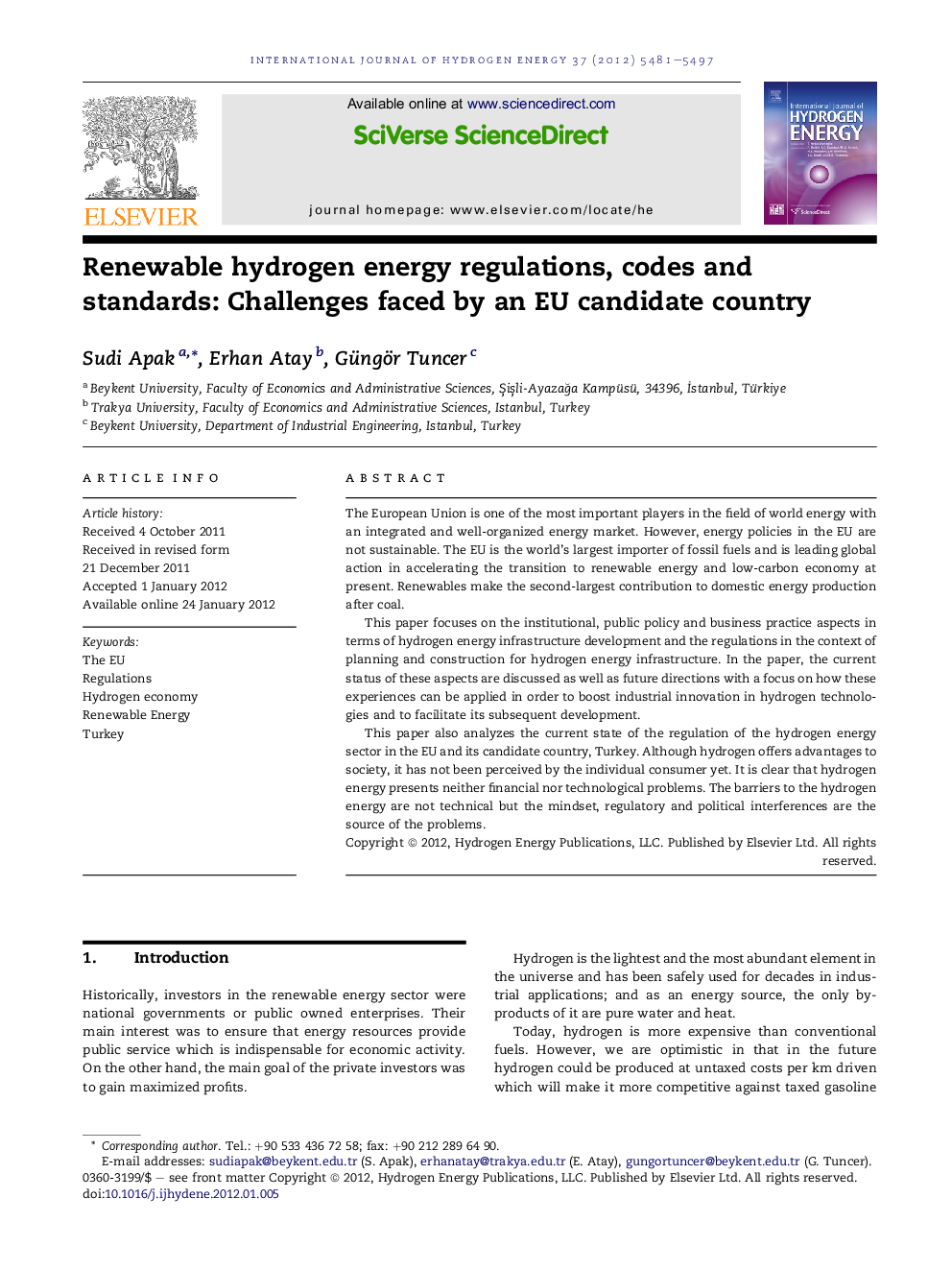| Article ID | Journal | Published Year | Pages | File Type |
|---|---|---|---|---|
| 1276837 | International Journal of Hydrogen Energy | 2012 | 17 Pages |
The European Union is one of the most important players in the field of world energy with an integrated and well-organized energy market. However, energy policies in the EU are not sustainable. The EU is the world’s largest importer of fossil fuels and is leading global action in accelerating the transition to renewable energy and low-carbon economy at present. Renewables make the second-largest contribution to domestic energy production after coal.This paper focuses on the institutional, public policy and business practice aspects in terms of hydrogen energy infrastructure development and the regulations in the context of planning and construction for hydrogen energy infrastructure. In the paper, the current status of these aspects are discussed as well as future directions with a focus on how these experiences can be applied in order to boost industrial innovation in hydrogen technologies and to facilitate its subsequent development.This paper also analyzes the current state of the regulation of the hydrogen energy sector in the EU and its candidate country, Turkey. Although hydrogen offers advantages to society, it has not been perceived by the individual consumer yet. It is clear that hydrogen energy presents neither financial nor technological problems. The barriers to the hydrogen energy are not technical but the mindset, regulatory and political interferences are the source of the problems.
► The study focuses on economics of hydrogen energy infrastructure development. ► The regulations in the context of planning and construction for hydrogen energy infrastructure are examined. ► The paper compares the current state of regulations of the hydrogen energy sector in the EU and Turkey. ► The alternative energy options of Turkey are important especially in the context of its full membership candidacy for the EU. ► Hydrogen economy does not present financial or technological issues but energy companies' influence on politics causes the problem.
